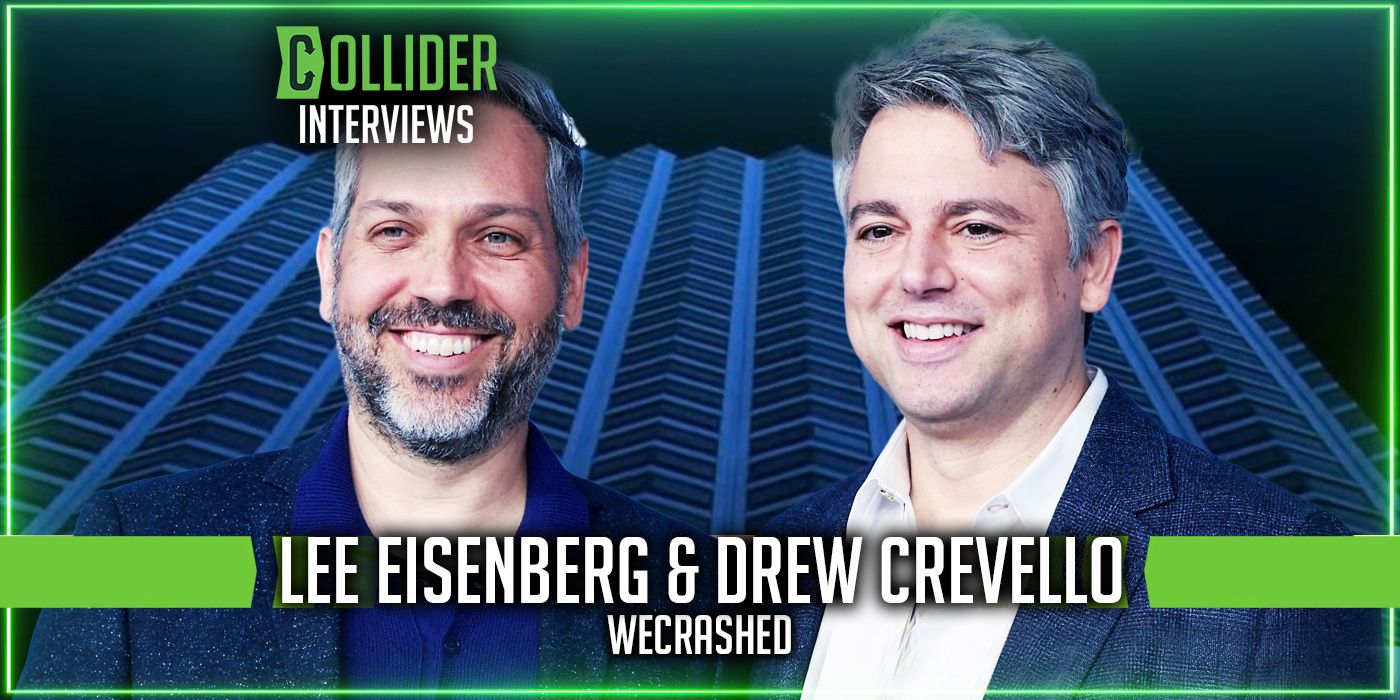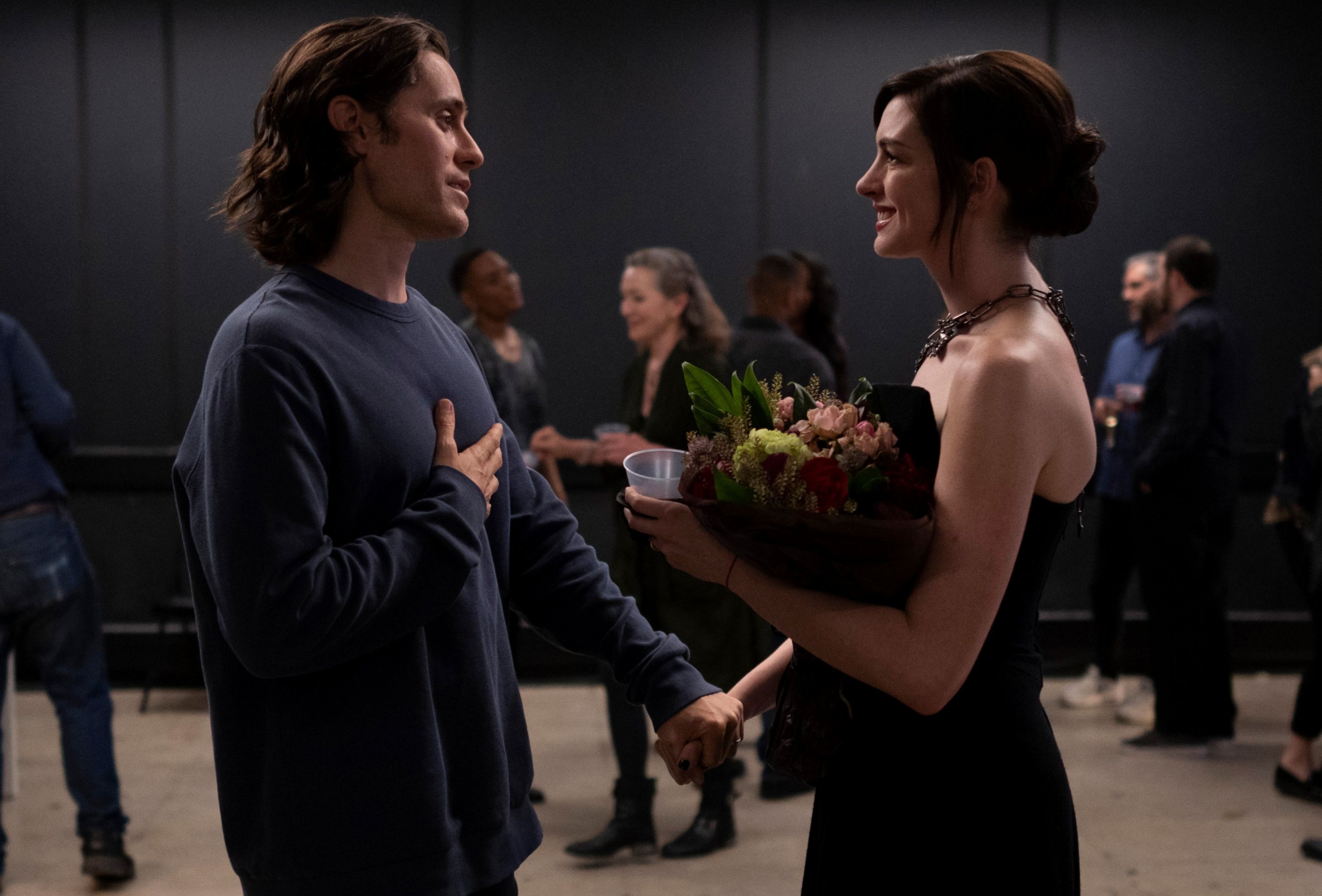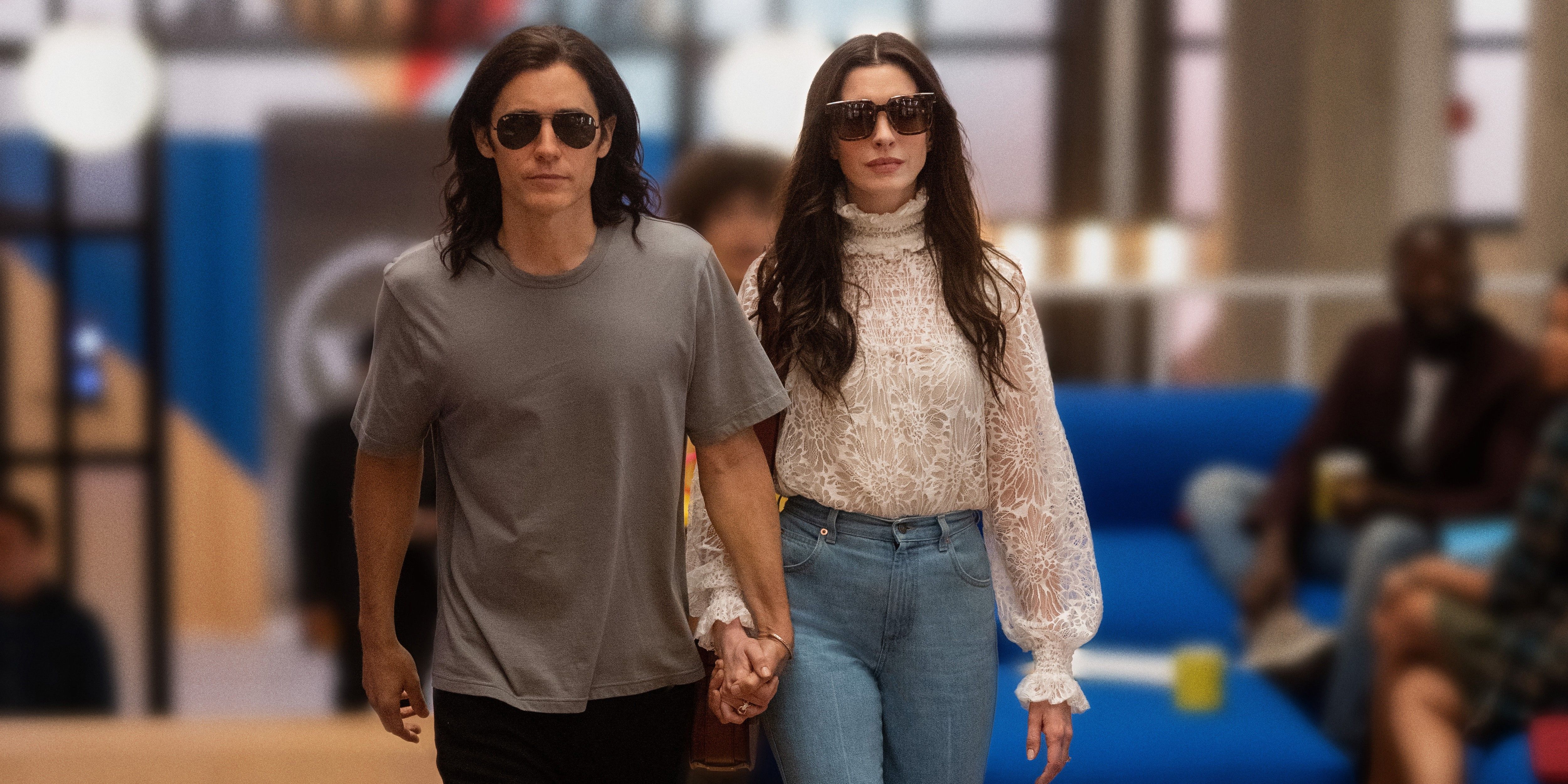Created by executive producers and showrunners Lee Eisenberg and Drew Crevello, the eight-episode limited Apple TV+ series WeCrashed tells the story of Adam (Jared Leto) and Rebekah Neumann (Anne Hathaway), a power couple that started with the best of intentions, only to quickly become so power-hungry that it led to the dramatic crash-and-burn of one of the world’s most valuable startups. As the CEO of WeWork, Adam’s natural charisma partnered with Rebekah’s spiritual lifestyle sold a brand that people bought into and that skyrocketed to success until greed led it to spectacularly blow up in their faces.
During this interview with Collider, Eisenberg and Crevello talked about having a clear sense of who Adam and Rebekah are, how this story couldn’t exist without the love story at its center, why this was not about criminal behavior, what led to the downfall of WeWork, the collaboration they shared with Leto and Hathaway, and what the experience of being a showrunner is like, especially on this show.
Collider: I found Adam and Rebekah Neumann so fascinating. Getting to the end of this, I feel like I still don’t really know them any more than I did at the beginning of this, which is equally as fascinating. Do you guys feel like you know who these two people are now, or do you feel like they’re still wrapped in mystery?
DREW CREVELLO: This is based on the Wondery podcast, which is phenomenal and worth listening to, if you haven’t because it’s its own investigation of the story. After listening to that podcast and then doing hours upon hours of our own research, speaking to childhood friends, and speaking to employees, I think both of us have a pretty clear sense. To the extent that you can know another human being, especially someone who’s a public figure that you don’t know personally, we feel like we know them and we have very clear opinions about them. What we tried to do is present them as objectively as we could, so you could draw your own conclusions. The people who’ve seen it have wildly differing opinions on them, which to us is exciting and provocative.
These two are really interesting because even though all these people seem to have sued them, they weren’t arrested and they weren’t punished for any crime. Is that partly why you guys decided to focus on the love story aspect of this?
LEE EISENBERG: To us, we didn’t decide to focus on a love story. We think the story is the love story. We don’t think that WeWork exists without Adam or Rebekah. That’s not something that we created. That’s based on our research and our conversations with people. We didn’t shoehorn in a love story because Anne Hathaway was interested. We followed the love story because we thought that was the center of the growth of this company that exploded into this crazy evaluation.
In terms of the criminality of this, we actually think that the fact that this story exists so much in the gray is what’s so exciting. It’s very cut and dry, Elizabeth Holmes is a criminal. She was arrested. She was found guilty. Therefore, she’s a criminal. With WeWork, they’re not criminals. They spent money frivolously, they overextended, they expanded too fast, and they promised employees things that they didn’t deliver. Is that criminal behavior? I don’t think it is. That’s what was interesting to us, exploring that side of it. You’re not watching Walter White in Breaking Bad.
CREVELLO: I think you really hit the nail on the head. Some of the reason I think you felt ambivalent, at the end of the show, about these two, is because it’s about ethics. It’s in that gray area, and that makes it more provocative and conversation worthy. It’s not only an indictment of Adam and Rebekah. It really brings into question what’s happening in our culture and what’s happening in our economy. This fake it until you make it, FOMO, Silicon Valley throwing vast sums of money at founders, there are a lot of people that bear some of the culpability here and it makes it more complicated.
Elizabeth Holmes promised something to people, with Theranos, that she never delivered on, so you can see the fraud there. Adam and Rebekah had an idea that they presented, and it took shape and became a real thing. They had this business, but it didn’t generate enough money.
CREVELLO: It’s interesting, they did make money. It actually is a great idea for a business and it made a lot of money. They were just spending more than they made. In one of the scenes, to illustrate the point, someone pokes a hole in a Styrofoam cup and then starts pouring water into the cup. No matter how much you pour, it will never fill up the cup because it’s running out the bottom. That makes it even more complicated.
EISENBERG: The other thing about WeWork is that it was beautiful. If you went into a WeWork, it was a great place to work. I have friends that write out of WeWorks all the time. I’ve spent time in WeWorks. It wasn’t a thing where they promised something and they didn’t deliver at all. When you walk into a WeWork, I can imagine, as Adam says, meeting your wife there or finding a new business partner. It’s a place that was inspiring. They expanded too fast, they took on too much money, and it was not an organic growth. Adam’s greed and hubris ultimately led to its fall, not the fact that it was a poor idea for a company or execution.
So much of people wanting to follow this journey with these characters is the actors that you have playing them. What was it like to collaborate and really partner up with Jared Leto and Anne Hathaway, who are both terrific in this?
CREVELLO: You captured the exact right word – collaborate. This was a collaboration. They had only read the pilot script. When we started speaking with them, they had read 60 of what would become 500 pages of material, so every page was informed by that collaboration. They started doing their own research. They had very strong opinions about the characters. It continually pushed Lee and I to make the characters deeper and more. Sometimes, with a story like this, there’s something delicious about rendering characters like this into caricatures, and Annie and Jared had no interest in that, so we just kept making them more complicated. That’s why your reaction of, “Are they good? Are they bad? Do I like them? Do I not like them?,” they helped drive us there, which is just so much more interesting.
Being a showrunner is not a job that there’s one way to prepare for and there’s no one way to do it. You have to know a little bit about everything because everyone is asking you questions that they expect you to have answers to. Is it the type of job that’s really sink-or-swim? Do you know right away whether it’s something you’re suited for? What are the specific challenges that come with running this show?
EISENBERG: Showrunning, in general, is incredibly difficult. I try explaining it to my friends and family, who are not in the business. You’re responsible for 250 people. You’re coordinating with construction guys and production designers, you’re approving sets and costumes, and you’re editing and making music choices. There are a million decisions, every day. If you step away from your computer for 15 minutes, what you’re brought back to is just terrifying, with all the emails in your inbox. And then, with a show like this, the other responsibility was that it’s based on a true story, so you have to get it right. We were constantly talking to legal. We were talking outside council. We were reading and rereading, and listening to podcasts, and listening to interviews. There was a real responsibility. We had no interest in vilifying Adam and Rebekah. We had no interest in making them heroes, but we felt a real responsibility to treating them fairly and accurately. That was so much of what our time was spent doing. You just have to multitask. Thankfully, with Drew and I, there’s two of us, so one of us was able to be in one place while the other was taking care of something else. It’s relentless. Drew and I have been working on this show for over two years, and we approved our final shot last week.
CREVELLO: Lee has done this a million times. He’s showrun quite a few shows. This was my first time. So, it would’ve been sink or swim, had I not had Lee by my side.
EISENBERG: But there were times we were together where we were both sinking. No amount of experience helps with that.
CREVELLO: I come from the film side of things and I worked in film for 16 years. This is my first real TV project. These days, especially with movie stars doing TV, it’s all the complexity of film plus all the complexity of TV. The medium is morphing a little bit.
EISENBERG: I would just say it’s the complexity of film with the length of TV.
WeCrashed is available to stream at Apple TV+.



